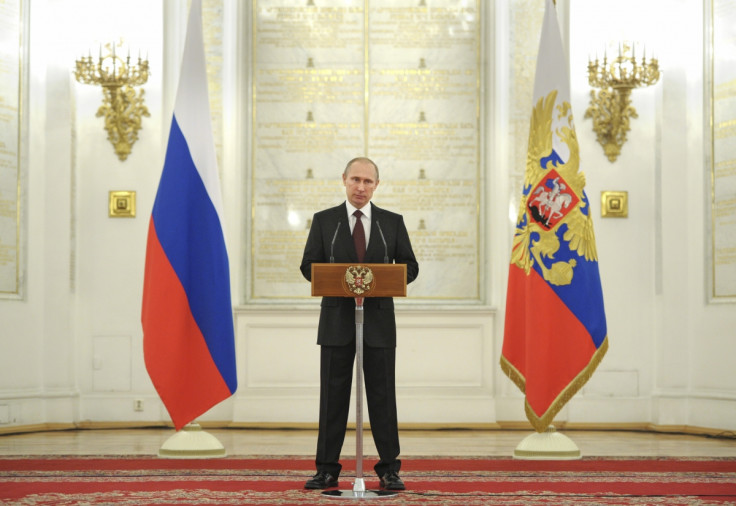Can Russia Really go it Alone?

When the United States and Europe announced a wave of sanctions directed against Russian individuals and banks, President Vladimir Putin was typically defiant.
'We'll build our own credit card networks!' he cried. It sounds simple and the response from Western leaders has been notable by its absence.
If there's one thing that the Russia US standoff over the Ukraine crisis has revealed it is that the West doesn't understand Russia. Lurching from bemusement to bafflement, Western leaders have muddled through the crisis in a piecemeal fashion, reacting to a volatile Vladimir Putin, empowered by soaring domestic popularity.
With a fresh bout of sanctions looming upon Barack Obama's return from East Asia, the West may have underestimated Moscow's ability to keep one step ahead. But can Russia actually cut itself off from the global system?
Establishing a credit card network would take one or two years and would free up the country's financial services from the prospect of sanctions.
"In countries such as Japan and China these systems work, and work very well," Putin told lawmakers last month.
"Initially, they started out solely as national systems limited to their own markets, their own territory, their own population but they are becoming more popular right now."
"Why should we not do it? We should definitely do it and we will do it," he said, adding that Russia's Central Bank and the government have been looking into the matter.
Talk of a national payments system has been rife in Russia for years but with the crisis becoming increasingly fraught, it seems more likely that it will be put into action soon.
Moreover, the speaker of the Russian parliament's upper house said the country should move to establish its own credit rating system. He told Putin that established agencies like Standard and Poor's, which downgraded Russia's sovereign debt on Friday, were driven by political agendas of foreign governments.
"I believe it's necessary to finally think about the creation of our own rating agencies," said Valentina Matviyenko, one of the officials targeted by US sanctions.
The measures would be popular within the country, where many Russians believe in greater autonomy. Popular wisdom also says the economy is too reliant on imports and exporting oil and gas. However, a national payments system would unlikely be accepted outside of Russia and would mark an isolationist step.
Some Russian banks have picked up business in wake of the West's sanctions against key Russian businessmen. Petrochemical giant Sibur is part-owned by sanctioned businessman Gennady Timchenko. The group has begun refinancing 27bn Roubles worth of deals with Russian banks after talks with international lenders broke down.
However, analysts believe that the system would not be able to sustain itself if international lenders were to fully withdraw. Russia had $624bn in foreign debt at the start of the year, too much to refinance domestically.
Moreover, Moscow's reliance on imports is the biggest factor drawing it away from isolation and rooting it in the international community. It relies on imports of food, machinery, pharmaceuticals, textiles and plastics.
Putin has railed against Russia's reliance on imports for years but that rhetoric has changed very little on the ground. Russia's lack of investment in its domestic production capacity is a long-term problem and that can't be changed on a whim.
The president and the country is at a crossroads. Russia's slow integration into the global economy can be reversed. Putin certainly sees the benefit of insulating Russia as he seeks to consolidate his grip on power. But while relatively short term measures like credit ratings companies and national payments systems may offer a degree of autonomy, it will take years of investment in the country's production infrastructure before Russia can really go it alone.
© Copyright IBTimes 2024. All rights reserved.






